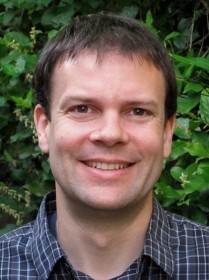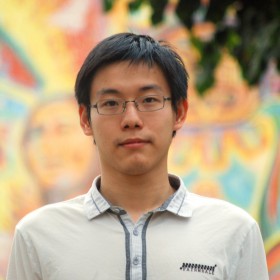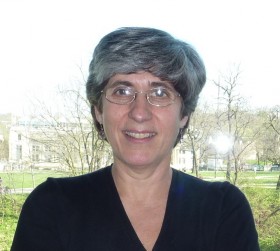Seminar
Reasoning About Our Visual World
Event Location: Newell Simon Hall 1507Bio: C. Lawrence Zitnick is a research manager at Facebook AI Research, and an affiliate associate professor at the University of Washington. He is interested in a broad range of topics related to artificial intelligence including object recognition, the relation of language and imagery, and methods for gathering common sense [...]
Fine-Scale Structure Design for 3D Printing
Event Location: Newell Simon Hall 1507Bio: Julian Panetta is a PhD candidate at NYU's Courant Institute, where he is advised by Denis Zorin. Julian is interested in simulation and optimal designproblems, specifically focusing on applications for 3D printing. Before joining NYU, he received his BS in computer science from Caltech and did research at NASA's [...]
Visual Correspondences in the Big Data Era
Event Location: Newell Simon Hall 1507Bio: Qixing Huang is an assistant professor at the University of Texas at Austin. He obtained his PhD in Computer Science from Stanford University and his MS and BSin Computer Science from Tsinghua University. He was a research assistant professor at Toyota Technological Institute at Chicago before joining UT Austin. [...]
Computational Perception of Geometric and Physical Object Properties
Event Location: Newell Simon Hall 1507Bio: Jiajun Wu is a third-year Ph.D. student at Massachusetts Institute of Technology, advised by Professor Bill Freeman and Professor Josh Tenenbaum. His research interests lie on the intersection of computer vision, machine learning, and computational cognitive science. Before coming to MIT, he received his B.Eng. from Tsinghua University, China, [...]
Autonomous Intelligent Service Robots: Learning and Explanations in Human-Robot Interaction
Manuela Veloso Herbert A Simon University Professor, Carnegie Mellon Abstract We research on autonomous mobile robots with a seamless integration of perception, cognition, and action. In this talk, I will first introduce our CoBot service robots and their novel localization and symbiotic autonomy, which enable them to consistently move in our buildings, now for more [...]
Beyond Geometric Path Planning: Paradigms and algorithms for modern robotics
Kris Hauser Associate Professor, Duke University Abstract The development of fast randomized algorithms for geometric path planning – computing collision-free paths for high dimensional systems – was a major achievement in the field of motion planning in the 2000's. But since then, recent advances in affordable robot sensors, actuators, and systems have changed the robotics [...]





